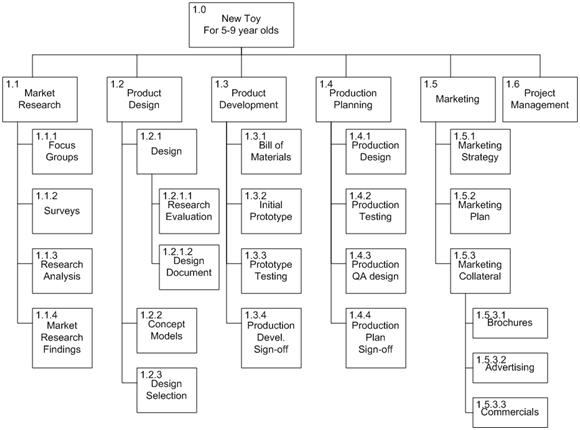What type of leader am I ?
Back in October 2020, I took part in an online NCS training workshop offered to me by Bradford College. They partnered with various guests but one was the company dare2lead. We took a social skills quiz and found out what type of leader you are.

My result was a mixture of blue and yellow, which are:
Expressive –
- Spontaneous actions and decisions.
- Likes involvement. ✓
- Dislikes being alone. ✓
- Exaggerates and generalises.
- Tendency to dream. ✓
- Jumps from one activity to another.
- Works quickly with others. ✓
- Enthusiastic. ✓
Analytical –
- Makes cautious actions and decisions. ✓
- Likes organisation and structure. ✓
- Dislikes too much involvement.
- Prefers objective work. ✓
- Attention to accuracy. ✓
- Relies on facts and/or data.
- Prefers to work alone.
- Likes to think things through. ✓
The traits with ticks next to them are those I think apply the most to me and my management style. From this, any research that I gather, can either be applied to help me build on these or I can avoid any techniques that may work against my strengths as a manager.
Who would make a good project manager?
According to Duncan Haughey of projectsmart.co.uk (2019), someone who possesses any one of these qualities has the potential to be an amazing project manager:
- Leadership
- People Management
- Effective Communication
- Influencing/Inspiration
- Negotiation
- Conflict Management
- Planning
- Estimating
- Problem Solving
- Time Management
- Creative Thinking
I would say that at least eight of these qualities apply to me. This will mean that I can carry out an effective project. I would like to work on my communication skills as these will help to make the project run smoothly and also help me in life too.
What is the role of a Project Manager?
Duncan Haughey of projectsmart.co.uk (2019) says that they;
- Define the project, reduce it to a set of manageable tasks, obtain resources and build a team.
- Set the final goal for the project and motivate the team to complete the project.
- Access and monitor risks.
- Liaise with stakeholders.
But in order to understand what that means, I had to look at some key terms and phrases used in project management (Nassau, 2021).
- Stakeholders – A person or organisation involved in a project or whose interests may be positively or negatively affected by the success or failure of the project.
- Scope – A description of the work that will or will not be done.
- Baseline – A point of reference. E.g. Scope, Schedule and Cost. A combination of these three baselines is called a performance measurement baseline.
- Risk – Any factor that may interfere with the successful completion of a project.
Why a project may fail:
A project can fail because of many reasons such as (Symonds, 2021):
- Poorly defined project scope
- Inadequate risk management
- Failure to identify key assumptions
- Project managers who lack experience and training
- No use of formal methods and strategies
- Lack of effective communication at all levels
- Key staff leaving the project and/or company
- Poor management of expectations
- Ineffective leadership
- Lack of detailed documentation
- Failure to track requirements
- Failure to track progress
- Lack of detail in the project plans
- Inaccurate time and effort estimates
- Cultural differences in global projects
How can my project be successful?
A Work Breakdown Structure (WBS) is the first step to planning a project (Project Scheduling | Project Management Basics, 2021). For me, this came in the form of a project proposal but I plan to use the Project Insight version to help me plan out smaller elements of the project (please see below).

The idea of it is to state the project and then break it down into tasks then the tasks into small workloads. This is a very good idea as it can help to organize thoughts into manageable sections which can prevent stress and make it easier to delegate in certain situations. I made my own:

Bibliography:
- Eissa, M., 2010. Project Management. [online] Apmsdiary-pm.blogspot.com. Available at: <http://apmsdiary-pm.blogspot.com/> [Accessed 8 March 2021].
- Haughey, D., n.d. Introduction to Project Management. [online] Project Smart. Available at: <https://www.projectsmart.co.uk/introduction-to-project-management.php> [Accessed 8 March 2021].
- Loughton, J., 2021. [online] Dare2Lead. Available at: <https://dare2lead.co.uk/> [Accessed 8 March 2021].
- Lynda.com – from LinkedIn. 2021. All Courses | lynda.com. [online] Available at: <http://www.lynda.com/Business-Business-Skills-tutorials/Project-Management-Fundamentals/80780-2.html> [Accessed 8 March 2021].
- Lynda.com – from LinkedIn. 2021. All Courses | lynda.com. [online] Available at: <http://www.lynda.com/Business-Business-Skills-tutorials/Defining-project/80780/95043-4.html> [Accessed 8 March 2021].
- Managementstudyguide.com. 2021. Rework and Scope Management. [online] Available at: <https://www.managementstudyguide.com/rework-and-scope-management.htm> [Accessed 8 March 2021].
- Nassau, C., 2021. Local Action Group February 2021 Session.
- Project Insight, 2021. Work Breakdown Structure. [image] Available at: <https://piweb.azureedge.net/i/project-management-basics/work-breakdown-structure.gif> [Accessed 8 March 2021].
- Projectinsight.com. 2021. Project Scheduling | Project Management Basics. [online] Available at: <https://projectinsight.com/project-management-basics/project-management-schedule> [Accessed 8 March 2021].
- Reh, F., 2019. Understanding Project Management and Tips for Success. [online] The Balance Careers. Available at: <https://www.thebalancecareers.com/project-management-101-2275338> [Accessed 8 March 2021].
- Symonds, M., 2021. 15 Causes of Project Failure. [online] Project Smart. Available at: <https://www.projectsmart.co.uk/15-causes-of-project-failure.php> [Accessed 8 March 2021].
